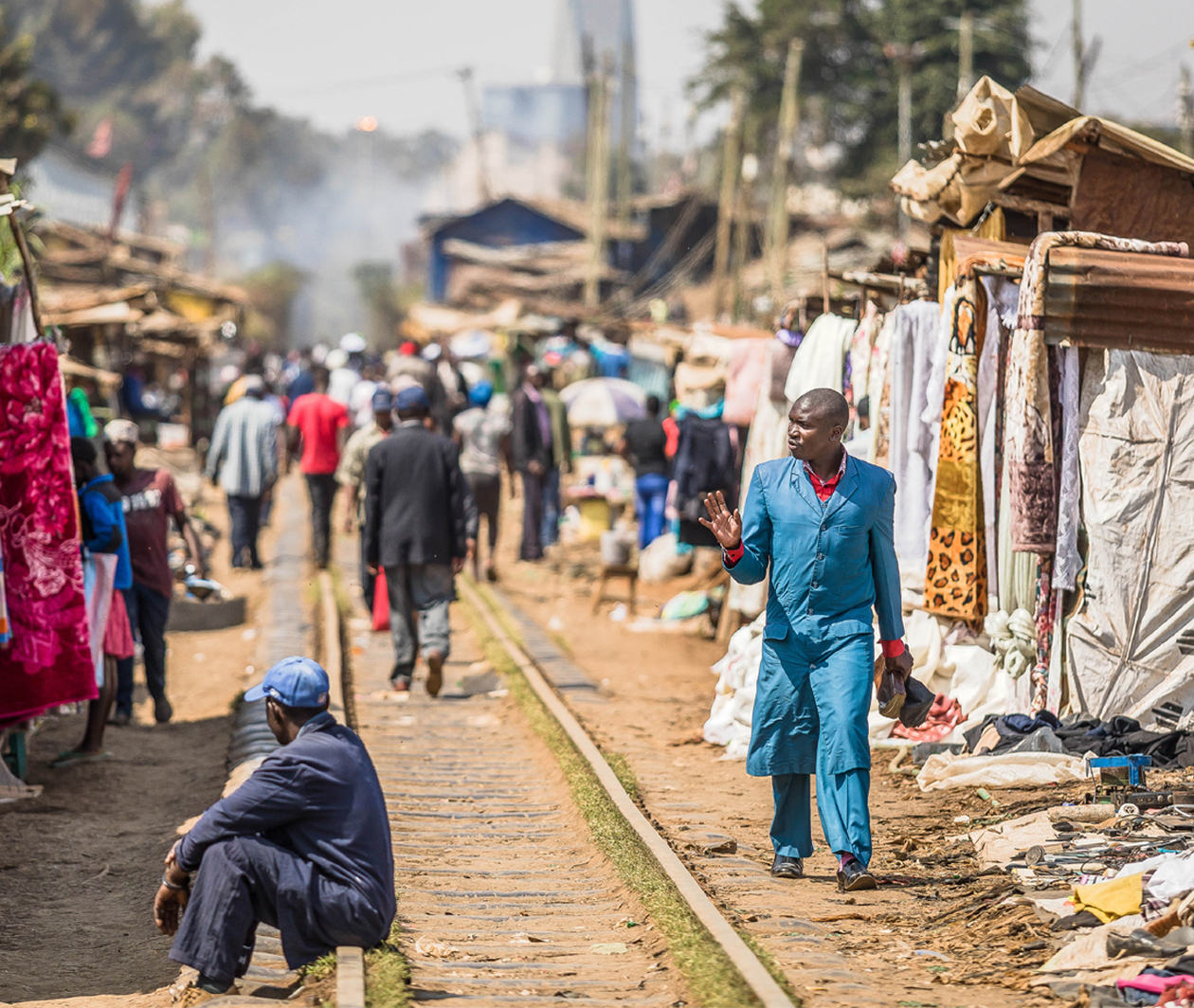Explore the key ideas, concepts and debates around the study of international development, using Nairobi in Kenya as a case study.

Duration
5 weeksWeekly study
2 hours
What is International Development?
Other courses you might like
This course isn't running right now. We can email you when it starts again, or check out these other courses you might like.
Browse more in Politics & Society and Nature & Environment
Discover the fascinating study of international development
On this course, you will learn how international development is conceptualised, imagined and communicated as an area of study.
You will consider the ways international development impacts individuals living in different parts of the world, focusing on Nairobi in Kenya.
You will use the example of Nairobi to relate abstract concepts and debates to the lived experiences of real people.
Upon completion of this course, you’ll have a deeper understanding of indicators of development, population growth, migration, urbanisation, and environmental issues like waste and pollution.
We have facilitation dates planned with our course team for:
- 25th October - Friday 27th November 2021
- 7th February - Friday 12th March 2022
- 9th May - Friday 11th June 2022
Syllabus
Week 1
Introduction to the Course and Measuring Development
Introduction to the course and measuring development
In this activity we will start to think about the many meanings of the term ‘development’.
Week 2
Uneven development
Uneven development
In this activity we will focus on our case study, Kenya.
Week 3
Media and Development
Media and Development
The media plays an important role in shaping public perceptions of development and the ‘developing world’ in the Global North.
Week 4
Demography, Gender, Health and Development
Demography, gender, health and development
This week we will learn about how demographics affect development by studying populations pyramids and demographic transition.
Week 5
Migration and Urbanisation
Migration and urbanisation
In this session we will discuss the causes and consequences of urbanisation.
Learning on this course
On every step of the course you can meet other learners, share your ideas and join in with active discussions in the comments.
What will you achieve?
By the end of the course, you‘ll be able to...
- Explain the key ideas, concepts and debates in international development
- Evaluate the different meanings and perceptions of development
- Investigate how development is measured
- Assess how 'development'and 'developing countries' are represented
- Explore the causes and consequences of population growth and distribution
- Describe urbanisation and the motivations that attract people to cities
Who is the course for?
This course is designed for anyone interested in diversity across the world.
It will be of particular interest to those considering study or work in international development.
Who will you learn with?
Associate Professor in Media and International Development at University of East Anglia - UK.
Head of the School of International Development, UEA. Interested in methodologies for doing good, ethical research and generating data for evaluation - a bit of a geek, really!
Researcher, analyst and educator specialising in anthropology, geography and international development. Lecturer in International Development at the Open University.
I am an associate professor in Media and International Development at the University of East Anglia, UK. I am the author of 'Media and Development' and study media freedom and humanitarian news.
Learning on FutureLearn
Your learning, your rules
- Courses are split into weeks, activities, and steps to help you keep track of your learning
- Learn through a mix of bite-sized videos, long- and short-form articles, audio, and practical activities
- Stay motivated by using the Progress page to keep track of your step completion and assessment scores
Join a global classroom
- Experience the power of social learning, and get inspired by an international network of learners
- Share ideas with your peers and course educators on every step of the course
- Join the conversation by reading, @ing, liking, bookmarking, and replying to comments from others
Map your progress
- As you work through the course, use notifications and the Progress page to guide your learning
- Whenever you’re ready, mark each step as complete, you’re in control
- Complete 90% of course steps and all of the assessments to earn your certificate
Want to know more about learning on FutureLearn? Using FutureLearn
Learner reviews
Learner reviews cannot be loaded due to your cookie settings. Please and refresh the page to view this content.
Do you know someone who'd love this course? Tell them about it...
You can use the hashtag #DEVMOOC to talk about this course on social media.
